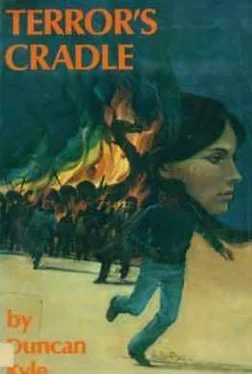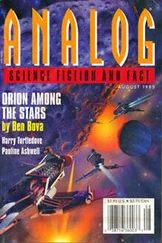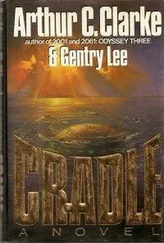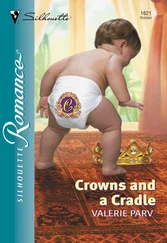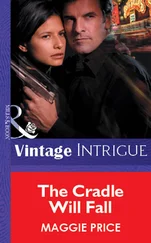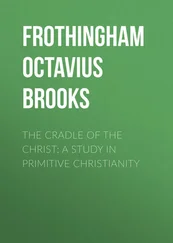Duncan Kyle - Terror's Cradle
Здесь есть возможность читать онлайн «Duncan Kyle - Terror's Cradle» весь текст электронной книги совершенно бесплатно (целиком полную версию без сокращений). В некоторых случаях можно слушать аудио, скачать через торрент в формате fb2 и присутствует краткое содержание. Год выпуска: 2010, Жанр: Старинная литература, на английском языке. Описание произведения, (предисловие) а так же отзывы посетителей доступны на портале библиотеки ЛибКат.
- Название:Terror's Cradle
- Автор:
- Жанр:
- Год:2010
- ISBN:нет данных
- Рейтинг книги:4 / 5. Голосов: 1
-
Избранное:Добавить в избранное
- Отзывы:
-
Ваша оценка:
- 80
- 1
- 2
- 3
- 4
- 5
Terror's Cradle: краткое содержание, описание и аннотация
Предлагаем к чтению аннотацию, описание, краткое содержание или предисловие (зависит от того, что написал сам автор книги «Terror's Cradle»). Если вы не нашли необходимую информацию о книге — напишите в комментариях, мы постараемся отыскать её.
Terror's Cradle — читать онлайн бесплатно полную книгу (весь текст) целиком
Ниже представлен текст книги, разбитый по страницам. Система сохранения места последней прочитанной страницы, позволяет с удобством читать онлайн бесплатно книгу «Terror's Cradle», без необходимости каждый раз заново искать на чём Вы остановились. Поставьте закладку, и сможете в любой момент перейти на страницу, на которой закончили чтение.
Интервал:
Закладка:
Whether it was adrenalin produced by fear, or whether the sugar and the food I'd eaten were doing what I'd hoped they'd do, it was impossible to tell. But I managed to keep climbing. I was still tired, my legs began to ache as my muscles faced the unaccustomed effort of a long, hard, uphill walk; but I was getting there. Stopping and turning, I looked down and across the long slope and saw that, even if I appeared to be making no headway, a third of the journey lay behind me. I turned and plodded on, hands on my knees now, pushing my legs downward with each step, bent low and leaning forward to minimize the effort. After a few more minutes, I stopped and gave myself another breather, and, looking back, guessed I'd come about a mile. Not far now, then. A few more minutes,.less than ten anyway, and the Holm should be visible. I was getting higher, and the air
grew colder. Had I not been working so hard, I would have been very chilled, and up here there was quite a strong wind.
I came quite suddenly on a sharp little down slope that ran direct to a low, ruined wall. To my left, the Noup itself reared still higher into the night sky; below and a couple of hundred yards to my right, a slash of darkness cut across the grassy slope. There was grass this side, grass the other. But that black tear into the earth must be the chasm between the island and the Holm.
I stopped for a moment, looking down at the acre top of the great stack, but could see nothing on it. The surface was not entirely flat; bumps and shadowed hollows told me that. I began carefully to pick my way down the slope, which was short and steep and far more genuinely dangerous than the sheep track I'd followed. If I fell here, I'd certainly roll; there were gaping holes in that low wall and on the other side of it, hundreds of feet of empty space.
Finally, with dreadful care, I came to the gap. Lincoln had told me Anderson had rigged up something called a Tyrolean traverse. I didn't know what that was and had imagined some kind of rope network stretched across the gap. If so, it wasn't there now. Instead, there was an apparatus like the earlier one Lincoln had described : a thick stake driven deep and held by pegged restraining wires. From the stake a heavy nylon rope stretched across to the Holm. I shouted Anderson's name, but the wind up here was in my face, carrying any sound I made back over Noss, not over to the Holm. I shouted and shouted, but drew no response. It was then I knew, sickeningly, that I should have to cross. I was beginning to believe Anderson wasn't there, but I couldn't be sure. And I had to be sure. If he was on the Holm he could be sleeping; after all, he'd built a hide there from which to watch his birds, and I hadn't been able to make enough noise to reach him, let alone to penetrate sleep.
But how to cross? There seemed to be no cradle; just the rope running down and across to the stack. As I came
carefully closer, I realized there was not one rope but two; the heavier was two-inch nylon, the lighter was of the same material, but only a slender line, running over a pulley on the stake and tied to a cleat below it. On the far side of the chasm, the heavy line ran into dark shadow and I could see nothing. But – and my heart thumped at the thought –if there was some kind of cradle, and it was on the other side, it could mean only one thing: Anderson had used the cradle to cross!
Quickly I untied the light line and pulled. A yard, and nothing had happened. Two yards. Hand over hand I pulled it in. There was a weight on the end and it was moving to wards me.
The cradle! As it came closer I could see that it was little more than a large, deep box. At front and rear, the wooden ends rose higher than the sides, and the rope ran through holes drilled into the wood. Simple. Efficient if the rope and timber held. Lethal if the rope failed, or the stakes were uprooted.
I looked at it with an apprehension approaching horror. In a moment or two I'd have to make myself get into the thing and move out over that black chasm. What was it Lincoln had called it?A hole into hell. He'd been exactly and precisely right; no exaggeration, no hyperbole. Except that the hell below was anything but fiery. I'd got the cradle over the cliff edge now and I hesitated a long minute before I could force myself to climb in. As I did, the rope sagged under my weight, the cradle rocked terrifyingly and I could hear my own uncontrolled grunt of panic. I squatted in the bottom of the cradle, keeping the centre of gravity as low as I could, and grasped the heavy nylon line securely. Then, drawing a deep, shuddering breath, I allowed the cradle to begin its slide down the rope.
I couldn't see what was beneath, and I was insanely glad I couldn't. There was only a vision of death down there and I was close enough, without actually seeing it. Slowly, passing the rope very carefully through my hands, I slid backward down the line, making sure every time I changed
hands, that my grip was hard and firm. If my hand slipped, the cradle would bucket away down the slope and while I'd no idea what was at the other end, it seemed frighteningly probable that I'd be thrown out and maybe flung into the depths below. The distance was only twenty yards or so, but it seemed endless; I moved only a foot with each fresh clutch at the rope and the sheer cliff of Noss was sliding into view above the end of the cradle, still very near.
Inch by inch, I made my way across, tense with fear, my mind empty of everything but that line and my own grip on it. Empty, that is, until a glance at the Noss cliff made me ask myself how I'd get back. I'd have to haul myself up the line, instead of merely stopping myself sliding down. It would take strength to do that, and to supply the leverage, I'd have to stand up in the swaying cradle. If only someone were standing on the Noss side, to pull on the lighter line!
That thought brought a new question stamping brutally into my mind. It was a question that made my skin crawl. The cradle had been on the Holm side. And the light line had been tied to the cleat. If Anderson had crossed to the Holm, then who had tied the line?
CHAPTER SEVENTEEN
I got my answer as the cradle gave a sudden bump behind me. The bump itself was, at that moment, bad enough; my first jolting thought was that something had gone dangerously wrong; and so it had, but not with the cradle. When I realized it could slide no further and that I was really across, actually on the Holm itself, I raised my body from its awkward crouch to look cautiously over the side. I was seven or eight feet from the edge, in a little cleft in the rock wall. I stood slowly upright, turning carefully to climb out, and found myself looking at the dark figure of a man.
He stood about five feet away, booted feet planted well apart. His back was to the moon so his face was in shadow but the moon gleamed on something else: on the blue barrel of the weapon in his hands.
He gave a quick jerk of the rifle, ordering me from the cradle, then stood back as I climbed gingerly out on to the Holm's thick grass surface. Another jerk of the rifle had me moving away from the edge, walking awkwardly backward, my arms raised. He didn't speak. When he'd got me where he evidently wanted me, near the middle of the flat top of the stack, he pointed to the ground, making me sit. He bent, picked up something from the ground and stepped back a pace or two before he took a fresh onehanded grip on the rifle and fumbled awkwardly with the other hand until a slender length of metal appeared. A radio. He was one of Marasov's men. He spoke quickly, in Russian, and I saw him 'look at me carefully as he talked, presumably giving a description. It didn't take long, and he snapped the aerial back in place, lowered the radio to the ground and took a proper grip of the rifle before he came closer again.
Читать дальшеИнтервал:
Закладка:
Похожие книги на «Terror's Cradle»
Представляем Вашему вниманию похожие книги на «Terror's Cradle» списком для выбора. Мы отобрали схожую по названию и смыслу литературу в надежде предоставить читателям больше вариантов отыскать новые, интересные, ещё непрочитанные произведения.
Обсуждение, отзывы о книге «Terror's Cradle» и просто собственные мнения читателей. Оставьте ваши комментарии, напишите, что Вы думаете о произведении, его смысле или главных героях. Укажите что конкретно понравилось, а что нет, и почему Вы так считаете.
